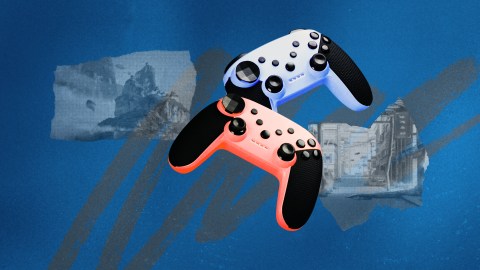How video gaming could boost your career

- While most people might not consider video gaming to be applicable to the workplace, a growing body of research suggests that gaming imparts skills that serve employees well, like problem-solving, resilience, and cooperation.
- Different types of games may yield different benefits. Multiplayer games can teach organizational and social skills, while puzzle and strategy games can teach problem-solving.
- Video games are highly engaging, regularly social, and often mentally-challenging, potentially improving work performance while providing a needed respite from work itself.
When Heather Newman, an avid gamer, was applying for the job of director of marketing and communications at the University of Michigan’s School of Information, she included all relevant experience on her résumé, including her prior role as a guild master in the massively multiplayer online role-playing game World of Warcraft.
While most people might not consider video gaming to be applicable to the workplace, Newman disagreed. In her in-game role, she managed guilds of as many as 500 people and organized 25 to 40 players to raid dungeons for several hours four to five days a week.
Newman’s intuition proved correct. She got the gig.
More than three billion people now regularly play video games. Gamers have triumphantly escaped their derided status as “lonely, lazy nerds.” They are no longer just pizza delivery people or technical assistant gurus at Best Buy’s Geek Squad; they are managers and CEOs — and astrophysicist Adam Frank.
Video gaming skills are transferable
As Françoise LeGoues, the former vice president of innovation at IBM, told the Wall Street Journal in 2014, gamers can thrive in workplaces “where employees must collaborate with colleagues anywhere in the world, often without having met in person,” foreshadowing the post-COVID era of remote work. “This capability to engage in strategy-building, team-building, knowledge-sharing, and problem-solving remotely is really important,” she added.
Many of the most popular games in the world are multiplayer oriented, in which gamers must communicate and work together to succeed. A growing body of evidence suggests that skills honed in these games translate well to the workplace, including personality traits (like extraversion, agreeableness, openness, and conscientiousness) as well as “computer-mediated communication skills and technology readiness,” a 2017 study from researchers at Missouri University of Science & Technology found.
In a previous interview with Big Think, game designer, author, and researcher Jane McGonigal further extolled the potential of social games to enhance work skills. “Studies have shown that we’re more likely to cooperate with someone in our real lives after we’ve played a social game with them where we’re doing some kind of cooperative mission. Or we’re more likely to set an ambitious goal for ourselves after we’ve succeeded in a game.”
In that spirit, writer Matt Lillywhite noted that, anecdotally, video games can help gamers develop resilience and work ethic. Anybody who has played games knows that a player often confronts failure on a regular basis. To get past that seemingly impossible level or challenging boss, you have to keep trying, often adapting your strategy after each maddeningly ill-fated attempt. Lillywhite’s observations have been born out in a study on adolescent gamers, which found that the more strategic games they played, the more their problem-solving skills improved after a year.
In a more recent study, a team of European scientists watched 40 business students play the turn-based strategy game Civilization, in which gamers must build a civilization, managing its military, economy, culture, and religion while competing with AI or human opponents. The researchers then had those same students take various assessments to gauge employment skills. They found that “students who had high scores in the game had better skills related to problem-solving and organizing and planning than the students who had low scores.”
Late last year, a team of psychologists from the University of Surrey analyzed data from the online gaming service Steam. Analyzing the playing habits of more than 16,000 gamers, they found that players with jobs in IT and engineering played more puzzle-platform games like Portal 2. Engineers also spent more time playing strategy games like the aforementioned Civilization. On the other hand, managers tended to play action role-playing games like The Elder Scrolls V: Skyrim. Each of those respective games could teach gamers “soft skills” pertinent to their respective fields, the authors said.
Unlike that so quintessentially passive pastime, watching television, video games are highly engaging, regularly social, and often mentally challenging, potentially improving work performance while providing a needed respite from work itself.





